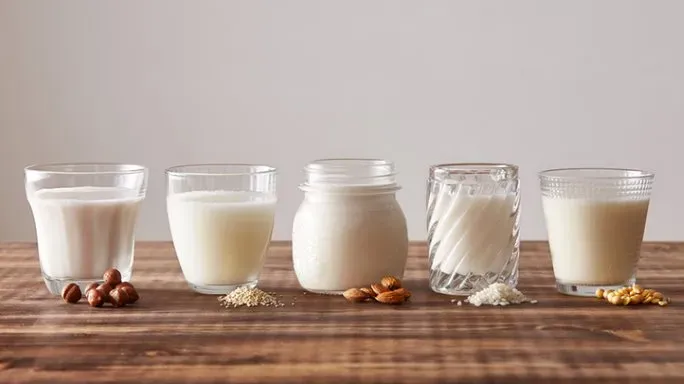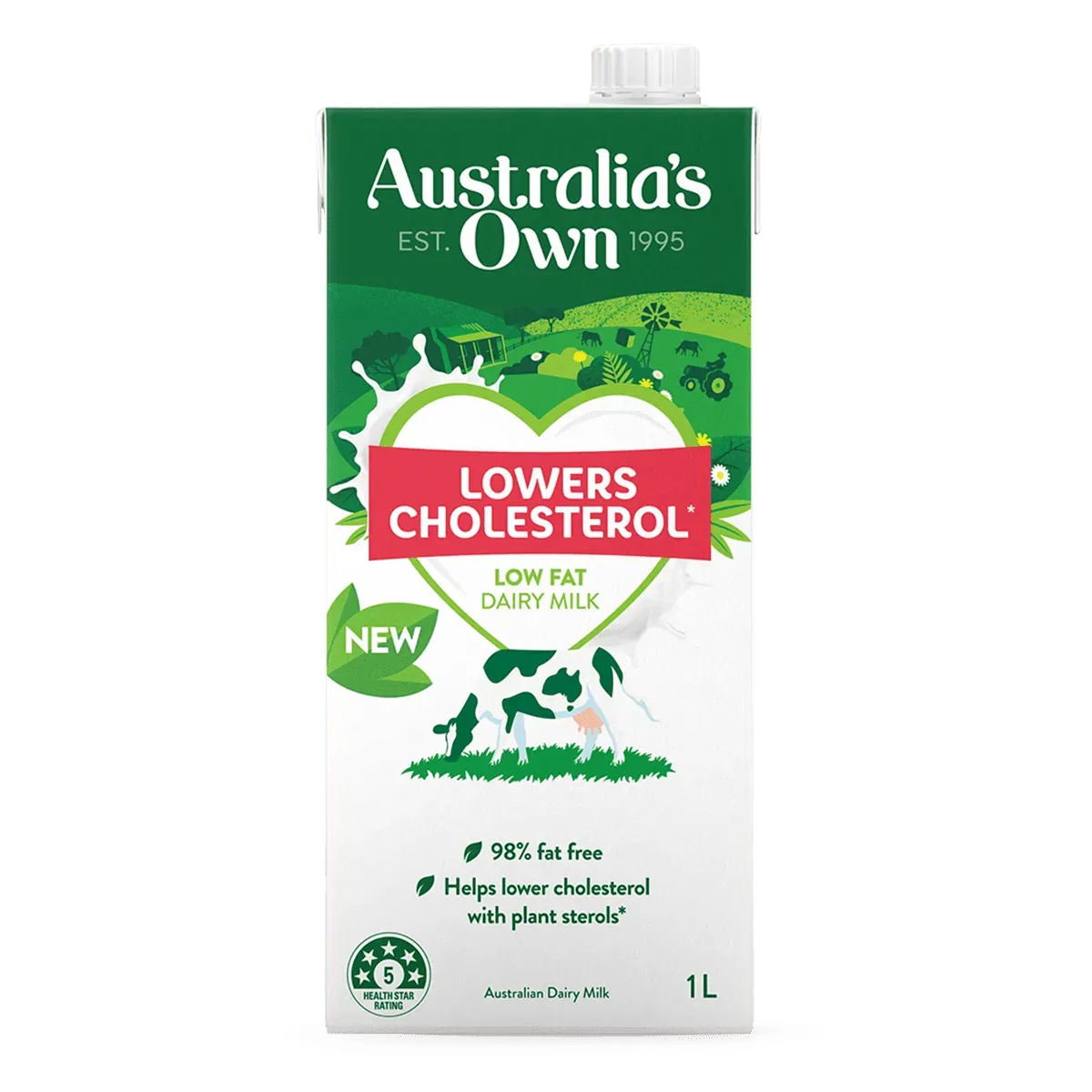Table of Contents
You're watching your cholesterol numbers, maybe your doctor suggested it, or maybe you just want to eat healthier. You're looking at your grocery list and wondering about milk. Does the type of milk you drink actually make a difference? It's a common question, and wading through all the conflicting information can feel like a chore. We hear a lot about saturated fat and dietary cholesterol, and how they might affect your heart health.
Understanding Cholesterol and Your Diet

Understanding Cholesterol and Your Diet
What Exactly is Cholesterol Anyway?
let's talk cholesterol. It's not some alien invader, despite how it's sometimes framed. It's a waxy substance your body actually *needs* to build healthy cells, make hormones, and digest food. Think of it like building blocks. Your liver makes all the cholesterol your body requires. The trouble starts when you have too much of a certain *type* floating around in your blood.
We usually hear about two main kinds: LDL and HDL. LDL is often called the "bad" cholesterol because high levels can lead to plaque buildup in your arteries, like gunk in a pipe. HDL is the "good" cholesterol; it acts like a cleanup crew, carrying excess cholesterol back to the liver to be flushed out. You want lower LDL and higher HDL numbers. Simple enough, right?
Does What You Eat Really Matter for Cholesterol?
For a long time, the focus was heavily on dietary cholesterol – the cholesterol found in foods like eggs and shrimp. The thinking was, eat cholesterol, get high cholesterol. Turns out, it's a bit more complicated than that. For most people, eating foods high in cholesterol doesn't significantly raise their blood cholesterol levels. Your body is pretty smart; it just makes less of its own when you eat more.
The real culprits, the ones that tend to mess with your blood cholesterol numbers, are saturated and trans fats. These fats encourage your liver to produce more LDL cholesterol. Found in things like fatty meats, butter, cheese, and many processed snacks, these are the fats you generally want to limit if you're trying to manage your levels. Understanding Cholesterol and Your Diet means paying attention to these fats, not just the cholesterol listed on a food label.
- Limit Saturated Fats Found In:
- Red meat
- Poultry with skin
- Butter, cheese, full-fat dairy
- Tropical oils (coconut, palm)
- Many baked goods and fried foods
Your Body's Own Production and Exercise's Role
As mentioned, your liver is the primary cholesterol factory. It churns out cholesterol based on your body's needs. But that production can be influenced by your diet, particularly those saturated and trans fats we just talked about. When you eat a lot of those, your liver gets the signal to produce more LDL.
Beyond diet, lifestyle plays a huge part. Regular physical activity is one of the best ways to help improve your cholesterol profile. Exercise helps increase your HDL ("good") cholesterol. It also aids in weight management, which can indirectly help lower LDL. So, moving your body isn't just about burning calories; it's a key player in keeping your cholesterol numbers in a healthier range as part of Understanding Cholesterol and Your Diet comprehensively.
Comparing Milk Types: Is Low Fat Milk Good for Cholesterol?

Comparing Milk Types: Is Low Fat Milk Good for Cholesterol?
Alright, so we've established that saturated and trans fats are the main villains for most people's cholesterol, not necessarily the cholesterol in the food itself. Now, let's look at milk. It's a staple for many, but not all milk is created equal when it comes to fat content. This is where the question of whether low fat milk is good for cholesterol really comes into play. We're talking about the difference between creamy, full-fat whole milk and its leaner cousins like 2%, 1%, and the virtually fat-free skim milk. Plus, there's a whole world of plant-based alternatives that have entered the ring, each with its own nutritional scorecard. Understanding the fat profile of each type is crucial for anyone monitoring their intake, especially if you're aiming to lower your LDL numbers.
Skim vs. Whole Milk: Making the Right Choice for Cholesterol

Skim vs. Whole Milk: Making the Right Choice for Cholesterol
Whole Milk: The Creamy Contender and Its Fat Load
Let's start with the classic, the one that feels substantial: whole milk. It's got that rich texture because, well, it's got fat. About 3.25% fat by weight, which might not sound like much, but it adds up, especially in terms of saturated fat. Remember those villains we talked about earlier? Saturated fat is the key player here, the kind that can nudge your LDL cholesterol upwards. A single cup of whole milk packs around 4.5 grams of saturated fat. If you're drinking multiple glasses a day, that contributes significantly to your daily intake, making it less ideal if you're actively trying to lower your cholesterol numbers.
Skim Milk: The Lean, Mean, Cholesterol-Friendly Machine
Now, swing over to the other end of the spectrum: skim milk. Sometimes called non-fat milk, it lives up to the name. The fat has been removed, leaving behind pretty much zero saturated fat and negligible total fat (less than 0.5%). This is precisely why low fat milk is good for cholesterol control, particularly skim milk. It provides the protein, calcium, vitamin D, and other nutrients found in milk without the saturated fat baggage that can impact your LDL levels. Sure, some people miss the creaminess, but if managing cholesterol is your priority, skim milk is the clear winner in the dairy aisle.
Milk Type | Approximate Total Fat per Cup | Approximate Saturated Fat per Cup | Cholesterol Impact |
|---|---|---|---|
Whole Milk (3.25%) | 8 grams | 4.5 grams | Higher saturated fat, less favorable for high cholesterol |
Reduced-Fat Milk (2%) | 5 grams | 3 grams | Less saturated fat than whole, still contributes |
Low-Fat Milk (1%) | 2.5 grams | 1.5 grams | Significantly less saturated fat, better option |
Skim Milk (Non-Fat) | Less than 0.5 grams | Less than 0.3 grams | Minimal saturated fat, best dairy option for lowering LDL |
Making the Choice: Skim vs. Whole Milk for Your Cholesterol Goals
So, when it comes down to Skim vs. Whole Milk: Making the Right Choice for Cholesterol, the evidence points towards the lower-fat options. While whole milk is fine for some, especially growing kids, adults focused on heart health and managing cholesterol should lean towards skim or 1% milk. They deliver the nutritional benefits of dairy without the load of saturated fat found in whole milk. Choosing low fat milk is good for cholesterol management because it directly reduces one of the main dietary factors that can raise your LDL levels. It's a simple swap that can support your overall health goals.
PlantBased Milks: An Alternative for Managing Cholesterol

PlantBased Milks: An Alternative for Managing Cholesterol
Exploring Non-Dairy Options for Heart Health
Stepping away from the dairy aisle opens up a whole new world of options, especially if you're exploring alternatives for managing cholesterol. Plant-based milks have exploded in popularity, and for good reason. You've got almond milk, soy milk, oat milk, cashew milk, rice milk – the list goes on. Unlike dairy milk, these generally contain no dietary cholesterol (which, as we discussed, isn't the main issue for most people), but more importantly, many are naturally lower in saturated fat than whole or even 2% cow's milk. This makes them attractive players in the game of keeping your LDL numbers in check. However, their nutritional profiles vary wildly. Some are loaded with added sugars, others are fortified with calcium and Vitamin D to mimic dairy, and some offer a decent amount of protein (like soy milk), while others offer very little (like almond milk). It's not a simple "plant-based equals healthy" equation; you still need to read the labels.
Making Your Milk Choice
So, where does this leave us on the question of whether low fat milk is good for cholesterol? The short answer for many is yes, it's often a better bet than whole milk if you're focused on reducing saturated fat intake, which can influence blood cholesterol levels for some individuals. Skim and 1% versions offer essential nutrients found in dairy without the higher saturated fat load of whole milk. Plant-based milks present another avenue, each with its own nutritional report card – some are naturally lower in fat, others fortified with vitamins and minerals. Ultimately, the milk that's 'good' for your cholesterol fits into your overall dietary pattern and health goals. There's no single magic bullet in the dairy aisle, just options with different nutritional trade-offs.
